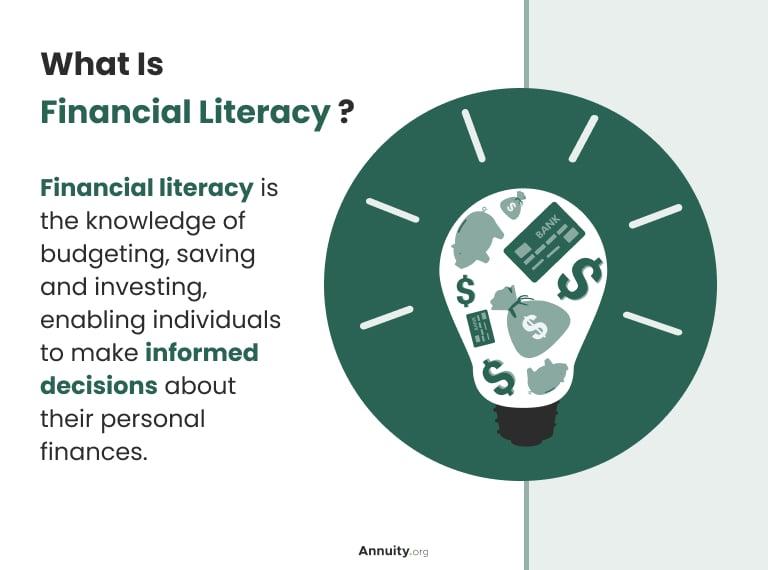Hey there! So, you’re ready to dive into the world of financial literacy but have no idea where to start, right? No worries, we’ve all been there. Whether it’s trying to understand how savings accounts work, what the heck a 401(k) is, or simply figuring out how to not go broke before your next paycheck, getting a grip on your finances can seem overwhelming. But fear not! This article is here to break down the key concepts of financial literacy in a way that’s easy to digest, even if you’re starting from scratch. So grab a cup of coffee, find a comfy seat, and let’s jump into the essential financial know-how every beginner needs!

Understanding Your Money Basics
To grasp the essentials of managing your finances, you’ll want to start with some key concepts. These ideas form the backbone of understanding your money. First, income is the money you earn, and expenses are what you spend. The difference between income and expenses? That’s your savings. Understanding your money flow helps you make better decisions about your spending and savings goals.
Next, meet budgeting – your new best friend. Creating a budget means knowing where your money goes. Here’s a simple way to start:
-
- List your monthly income
-
- Subtract your fixed expenses (rent, utilities, etc.)
-
- Allocate for variable expenses (groceries, entertainment, etc.)
It might look something like this:
| Category | Amount |
|---|---|
| Income | $3000 |
| Fixed Expenses | $1200 |
| Variable Expenses | $800 |
| Savings | $1000 |
Decoding Financial Jargon
Ever found yourself scratching your head over terms like “APR,” “compound interest,” or “dividends”? You’re not alone! Financial jargon can be like a different language, but understanding these terms can make a huge difference in how you manage money. Let’s break it down:
-
- APR (Annual Percentage Rate): This is the cost of borrowing money on a yearly basis. Think of it as the sticker price of a loan.
-
- Compound Interest: This is interest on interest, meaning your money grows faster over time. It’s like a snowball rolling down a hill; it keeps getting bigger.
-
- Dividends: These are payments made by a company to its shareholders, usually out of profits. Imagine it as a bonus for having skin in the game.
To give you a clear picture, here’s a quick compare-and-contrast:
| Term | Simple Explanation |
|---|---|
| APR | The yearly cost of borrowing money. |
| Compound Interest | Interest that builds on interest, accelerating growth. |
| Dividends | Profit sharing with shareholders. |

Creating a Budget That Actually Works
First things first, know how much money you have coming in and going out. Start by jotting down your income and expenses. It’s all about knowing where every dollar goes. To make things easier, you can break down your expenses into categories like:
-
- Rent/Mortgage
-
- Utilities
-
- Groceries
-
- Transportation
-
- Entertainment
Once you have a clear picture, it’s time to set some priorities. Focus on the essentials first – think food and shelter. If you find that your outgoing cash is more than what’s coming in, consider cutting down on non-essentials. Here’s a quick table to help you visualize:
| Category | Monthly Spend ($) |
|---|---|
| Rent/Mortgage | 800 |
| Groceries | 300 |
| Utilities | 150 |

Building a Solid Savings Plan
Creating a reliable savings plan is crucial for managing your finances efficiently. Start by understanding the importance of setting financial goals. Think about why you want to save: is it for an emergency fund, a vacation, or future investments? Having clear goals will keep you motivated and focused. Next, decide how much you want to save. A good rule of thumb is to put aside at least 20% of your income every month. Don’t worry if you can’t start with this amount; even a small, consistent contribution will make a difference over time.
Once your goals are set, develop a strategy to reach them. Here are some tips to get you started:
-
- Pay Yourself First: Set up an automatic transfer to your savings account as soon as you receive your paycheck.
-
- Create a Budget: Track your expenses to see where you can cut back and save more.
-
- Use a Savings App: Apps can help you save spare change or even round up your purchases and save the difference.
-
- Look for High-Interest Accounts: Choose a savings account that offers better interest rates to maximize your earnings.
| Item | Amount Saved |
|---|---|
| Coffee Shop | $20/month |
| Dining Out | $50/month |
| Subscriptions | $30/month |
By following these simple steps and keeping track of your progress, you’ll be able to build a solid foundation for your financial future.
Q&A
*Q&A*
Q: What exactly is financial literacy?
A: Great question! Financial literacy is all about having the knowledge and skills to manage your money effectively. It covers everything from budgeting and saving to understanding loans and investments. Think of it as the roadmap to making savvy financial decisions.
Q: Why is financial literacy important?
A: Imagine trying to navigate a city without a map or GPS. You’ll probably get lost, right? The same goes for money. Being financially literate helps you avoid costly mistakes, prepare for future goals like buying a house, and gives you peace of mind. It’s a crucial part of adulting!
Q: Where should I start if I want to become financially literate?
A: Start with the basics. Learn how to create a budget, understand the importance of an emergency fund, and get the lowdown on credit scores. Once you’re comfy with these, you can dive into more complex topics like investing and retirement planning.
Q: Budgeting sounds boring. Do I really need to do it?
A: Totally get you. Budgeting might not be the most exciting thing, but it’s like the foundation of your financial house. A good budget helps you see where your money is going, so you can make adjustments and reach your goals faster. And hey, you can make it fun with apps that track your spending and help you save!
Q: Okay, so what’s the deal with emergency funds?
A: An emergency fund is your financial safety net. It’s money you set aside to cover unexpected expenses, like medical bills or car repairs. Ideally, aim for 3-6 months’ worth of living expenses. Trust me, your future self will thank you when life throws a curveball.
Q: I’ve heard a lot about credit scores. Why are they so important?
A: Think of your credit score as your financial report card. It tells lenders how reliable you are at paying back debt. A good credit score can help you get loans with better interest rates, secure a rental, or even snag a job. Basically, it opens doors—so it’s worth keeping it in good shape!
Q: What if I have no clue about investing? Is it too late to start?
A: It’s never too late to start investing! First, educate yourself on the basics—stocks, bonds, mutual funds, etc. You can begin small and, as your confidence and knowledge grow, diversify your investment portfolio. Consider consulting a financial advisor if you need personalized guidance.
Q: Any tips for saving money even when I feel like I don’t make enough?
A: Oh, totally! Even if you’re on a tight budget, small changes can add up. Start by tracking your expenses; this will help you identify non-essential spending that you can cut down. Set up automatic savings transfers, even if it’s just a few bucks a week. Over time, it’ll grow more than you’d expect!
Q: Where can I find reliable information to boost my financial literacy?
A: There are loads of resources out there! Websites like Investopedia and NerdWallet offer tons of practical advice. For a more structured approach, check out online courses on platforms like Coursera or Udemy. Don’t forget podcasts and YouTube channels—there’s a wealth of info, literally!
Q: Any final nuggets of wisdom on financial literacy?
A: Sure thing! The key to financial literacy is to start slow and stay curious. Don’t be afraid to ask questions and keep learning. Managing money is a lifelong journey, but the more you know, the better your journey will be. Cheers to becoming money-smart!
The Conclusion
And there you have it, folks! We’ve journeyed through the basics of financial literacy, touching on everything from budgeting and saving to understanding interest and debt. It might feel a bit overwhelming at first but remember, every financial guru out there started where you are right now—with the basics.
So, take a deep breath, grab yourself a coffee (or a soothing tea!), and revisit these concepts whenever you need to. Dive deeper, ask questions, and don’t be afraid to make mistakes—that’s how you learn and grow. Your future self will thank you for taking the time to get a grip on your finances now.
Got questions or wanna share your own tips? Drop a comment below! Let’s keep the conversation going and help each other on this journey to financial savvy. Happy saving, smart spending, and here’s to a stress-free financial future!
Catch you in the next article!







[…] An emergency fund is a stash of money set aside to cover unexpected expenses like medical bills, car repairs, or sudden job loss. It’s like your […]
[…] one of the most crucial steps towards financial security is establishing a solid savings plan. To start, it’s essential to create a budget that tracks both your income and […]